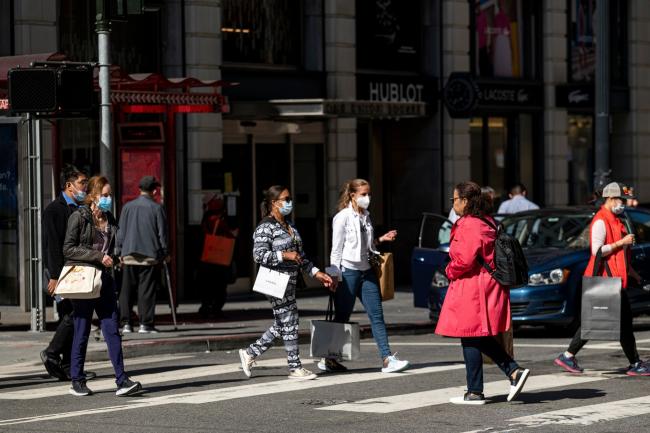(Bloomberg) -- US consumer long-term inflation expectations declined in early July by more than forecast at the same time lower gasoline prices helped boost sentiment.
Consumers expect prices will rise at an annual rate of 2.8% over the next five to 10 years, down from June’s 3.1% and the lowest since July of last year, University of Michigan data showed Friday. They see costs rising 5.2% over the next year, compared to last month’s 5.3%.
The university’s sentiment index rose to 51.1 from a historic low of 50 in June. The median estimate in a Bloomberg survey of economists called for no change.
The easing in inflation expectations is welcome news to the Fed, which is trying to prevent inflation from becoming further entrenched in the US economy. Combined with the uptick in overall sentiment and stronger-than-forecast retail sales in a separate report, the data dampens prospects that the central bank would opt for a larger full-point increase at its meeting later this month.
“Consumers remained in agreement over the deleterious effect of prices on their personal finances,” Joanne Hsu, director of the survey, said in a statement. Roughly half of respondents blame inflation for lowering their living standards, the worst since the 2008 financial crisis, she said.
A gauge of current conditions rose to 57.1, the biggest jump since April 2021, likely reflecting lower gas prices as well as a strong labor market. A measure of future expectations declined to 47.3, the lowest since 1980.
The figures underscore the painful toll of inflation, which has more than offset wage gains for most Americans and eroded consumers’ purchasing power. The weak stock market and growing fears of a recession are also dampening sentiment.
In a news conference Thursday, JPMorgan Chase & Co. (NYSE:JPM) Chief Executive Officer Jamie Dimon said that the consumer is “in very good shape,” though “obviously their confidence is dropping.”
Buying conditions for household durable goods improved somewhat, though remained historically weak, tied to improving supply-chain constraints, Hsu said. A separate report earlier Friday showed US retail sales broadly advanced in June.
Current assessments of personal finances continued to deteriorate, reaching its lowest point since 2011,
according to the university’s report.
Still, the labor market has been a bright spot. Private-sector employment recovered to pre-pandemic levels in June and the unemployment rate held near a five-decade low, signs of resilient demand.
©2022 Bloomberg L.P.
